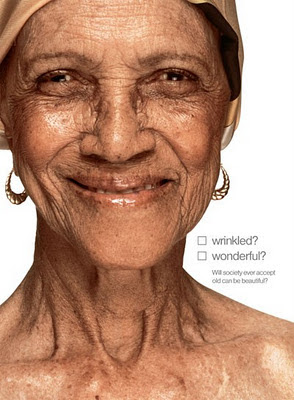by Mindy Fried | Nov 20, 2012 | aging, engaged aging, health, making choices, military family policies, women and self-esteem, women and work
I don’t know about you, but for a few days – well maybe a week – I was obsessed with the soap opera that unfolded with General Petraeus, Paula Broadwell, and the Kardashian-look-alike twins who throw champagne-infused parties for the military elite. Who knew that this world even existed?! It was temporarily intoxicating. That said, this is not a James Bond story, where seduction and hot sex are intertwined with power and our country’s national security. This is the everyday horror of people making terrible personal mistakes. And I’m not surprised that as readers try to make sense of the un-reality of “the facts”, a number of narratives about who to blame have been dusted off and brought to bear once again.

According to one narrative, the blame goes to the evil temptress, a Harvard-trained intellectual and top-of-the-line athlete (read: good in the sack) who brings down the CIA chief. Think Fatal Attraction, where the woman is in charge and the man is uncontrollably gripped by her charm and power, with no alternative but to succumb. In another narrative, the blame goes to the high-level spy who takes advantage of – no, seduces – the lower-level acolyte, and just cannot keep it zipped up, despite all his medals to the contrary. Think Bill Clinton, driven by self-destruction, someone who acts first and thinks later. Hardly the image one wants to conjure up for the head of the CIA. Less prominent, but implicit among these narratives, is the role of the spy guy’s wife, who is subtly blamed for not satisfying her man. This narrative blames her because she’s middle-aged (read, unattractive), with the assumption is that she no longer has the goods. Narrative three then morphs into narrative two, which combines with narrative one, in which said high-level spy has no alternative but to explore younger, more supple, women, and one of them just happens to be out to get him. A perfect storm…

While there might be some bitter truth in all of these narratives, I’d like to focus on that last one, which capitalizes on the notion that older guys get more sexy, in contrast to older women, who get more dowdy, wrinkly and saggy as we age. This narrative has it that as women get older, we lose our appeal; we no longer shine; we fade; we become less attractive. And barring heavy use of botox and liposuction, that so-called “fact” is justification for our men to rove.

Now back to the Petraeus “affair”. Thankfully, the media is not exploiting Holly Petreaus’ story, only to say that she is furious. (Wouldn’t you be if you happened to be married to this adulterous four-star General? Okay, maybe you find it hard to imagine that you’d marry this dude…) But according to military spouse and marriage consultant, Jacey Eckhart, this telenovella (melodramatic soap opera in Spanish) has fired up fears among other military spouses, who are worried that their marriages will follow suit. http://www.nytimes.com/2012/11/16/opinion/the-petraeus-effect-on-military-marriage.html?ref=opinion
While Eckhart, a competent, articulate military spouse, knows rationally that she has nothing to worry about in her own relationship, she says the scandal has “reduced me to a wet towel and tears”. Why? Because she says that men, as they age, become more like Cary Grant, and women become more like the older “Tony Curtis”, meaning old (and kinda gay). Granted (no pun intended), military families endure enormous strains because they move frequently, and often it is the spouse who helps their family settle in a new area while the military “member” is off fighting a war (or hopefully keeping peace somewhere in the world!).
Moreover, repeat deployments place even more strain on the family, both when the military member is gone, as well as when s/he comes back, after having been traumatized by the experience of war. But separation of military spouses and their families – and ensuing loneliness – is the issue, not whether a woman can stay hot enough to hold onto her man.

Eckert laments that “history isn’t enough to keep a long military marriage together”. At the same time, she notes that military marriages end at the same rate as so-called civilian marriages. So what’s the big deal?! The problem isn’t that men will be men, and women should quiver in their boots for fear they will be cast off for a better model. The problem is that we gals sometimes internalize the societal notions that our shelf lives have expired once we hit 40 or 50 or 60. Instead of buying into – or internalizing – these lethal notions, we need to embrace the woman we are becoming, our all-inclusive selves, including our wisdom about people and life, and even the tell-tale wrinkles and sags and possibly even the dowdiness. Let’s not compare ourselves to younger women and feel self-critical. The reality is that we are all the ages we have been, and so much more. Of course, it’s important that we take care of ourselves – that we eat well, and remain active intellectually and physically; those lifestyle choices are critical if we want to live a long life. But ultimately, our worth should not be measured by our youthfulness. Even the General is now saying it was a big mistake…

by Mindy Fried | Jan 21, 2011 | child care, early education and care, family, military family policies, parental leave policy, policy, work and family balance
A number of years ago, I was invited to the Pentagon to talk about a work and family study I was conducting. Anyone who knows me may find this fact pretty incongruous. But I was intrigued to find out about the human resources side of the military. Given my history of antiwar and women’s rights activities – and the fact that my father had been subpoenaed to appear before the House Un-American Activities Committee in the 1950s – I fully imagined that I wouldn’t make it through the security screening. But, to my surprise, I sailed through. I found myself being chaperoned through dingy hallways to a very nondescript office for a meeting with a powerhouse of a woman who headed up programming on family supports for military “members” and their families.

Over the next two years, I worked with her and a real live Colonel, a kind and gentle soul who was an expert on domestic violence issues in the military. Our work together focused on assessing how well various military family support agencies were able to collaborate. Their “mission” was to support families through the challenges of dealing with deployment and loss.
I initially felt like a fish out of water working within this institution. But I soon connected with the human dimension and discovered that within the military, there are people from incredibly diverse backgrounds – including political perspectives – who really care about people’s well-being. I also learned that the military has far more progressive family policies than governmental policies in the civilian sphere, which rely on a hodgepodge of precarious private and public funding to service those in need.

I discovered, for example, that the military provides high-quality, affordable and accessible childcare in which early childhood teachers are paid good wages. According to Gail Zelman and Susan Gates, researchers at RAND,
“While there are no easy or obvious solutions to the childcare problem, policymakers can look to an unlikely source from ideas about improving childcare: the military. The US Department of Defense (DoD) has succeeded in optimizing the three key aspects of child care delivery – availability, quality and affordability – a juggling act unduplicated anywhere else in the country. The system currently meets around 60% of the assessed need, serving about 176,000 children 6 weeks to 12 years old in 900 centers and in 9,200 family child care homes nationwide. (Family child care homes are usually run by military spouses.)”
Let’s be honest here: The military’s desire for high levels of productivity and commitment among its members – and the need for support from military family members – are the drivers underpinning military support for these policies.
So what can policymakers learn from DoD’s experience, ask researchers Zellman and Gates?
“The clear message is that affordable, high-quality child care requires a system level commitment to quality, as well as incentives and funding to make it a reality.”

In contrast, our “civilian” child care system in the U.S. is underfunded and suffers from lack of quality, which can largely be attributed to low wages and inadequate support for its workers. In fact, the turnover rate of early childhood teachers in the U.S. is between 25-30%. Research points to a “turnover climate” which affects overall program quality. One study found that highly trained teachers (BA level or higher with specialized training) “were more likely to leave their jobs if they earned lower wages, worked with fewer highly trained teachers and worked in a climate with less stability.” (Whitebook, at al, 2001). Therefore, worker retention is linked to the stability of the program and ultimately, to higher quality.
In addition to high quality, affordable child care, the military offers paid parental leave and universal health care. Ironically, when progressives promote these policies at the federal (civilian) level, conservatives cry ‘socialism!’
In a memo entitled, “For Our Air Force Family,” Lieutenant General, USAF, Assistant Vice Chief of Staff, Joseph H. Wehrle, Jr., says,
“The United States Air Force is committed to taking care of its own. Steadfast, homefront support is provided to family members by the Integrated Delivery System… As always, we remain One Force, One Family.”
in the military, the credo – “We take care of our own.” – is motivated by the belief that this will support “readiness” for battle, increase productivity, reduce turnover, and ease the process of leaving one’s family behind to put oneself “in harms way” around the globe.
Without such immediate drivers in the corporate or non-military governmental sphere, it is hard to make the case – or as human resource professionals would say, the business case – for progressive family policies. But we don’t have to only look to Europe for inspiration around family policies; we can look to the U.S. military to find some of the most progressive policies in this nation. Don’t we all deserve them?












